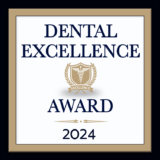
What is a Cavity?
A cavity is a hole in a tooth that forms due to the breakdown of the tooth enamel. The enamel is the hard coating of teeth. This is largely caused by the bacteria in our mouths, which produce acid that erodes the enamel and leads to rot in our teeth. Cavities can be painful and lead to further dental problems if left untreated.
Can a Cavity be Reversed?
Yes, some cavities can. Early-stage cavities can be reversed through a process called remineralization. This process involves restoring the minerals that make up tooth enamel that have been lost due to acid erosion. By doing so, the tooth’s enamel can harden and strengthen, potentially reversing the cavity.
How to Reverse a Cavity
Reversing a cavity requires a combination of good oral hygiene and a proper diet. The first step is to brush your teeth twice a day with fluoride toothpaste and floss daily to remove food particles and plaque that can contribute to cavity formation. Additionally, using an antibacterial mouthwash may help kill bacteria that contribute to cavity formation. Your dentist may recommend specific toothpastes to help with the remineralization process.
A healthy diet is also important for cavity reversal. Foods high in calcium, phosphorus, and vitamin D can help strengthen tooth enamel, while sugary and acidic foods and drinks should be avoided as they can contribute to tooth decay.
When is a Cavity Not Reversible?
Cavities that has progressed beyond the early stages and has reached the deeper layers of the tooth are not reversible through remineralization. In these cases, a filling or other dental treatment may be necessary to stop the cavity from spreading and causing further damage to the tooth.
How will I know if I can reverse a Cavity?
There is no guarantee that any breakdown in enamel is reversible. That said, it is important to visit your dentist at least twice a year for a check-up and cleaning. Only through an examination will your dentist be able monitor and assess the progress of any cavities. By working with your dentist, you can have the best chance of keeping your enamel healthy to avoid bigger problems.
When To Seek Professional Dental Care
If one of your teeth becomes newly sensitive, no need to panic just yet! You can reverse tooth decay in its early-stage through proper oral hygiene and a healthy diet. Meanwhile, a more advanced cavity may require dental treatment. Staying on top of your dental health and catching cavities early can make all the difference in preventing further damage to your teeth and maintaining a healthy smile. This is best done by seeing dentists like Shorewood Family Dental Care in the Joliet Illinois area for your routine semi-annual checkups. During these visits we can determine if you have any cavities and work with you on a treatment plan to keep your mouth happy and healthy.




